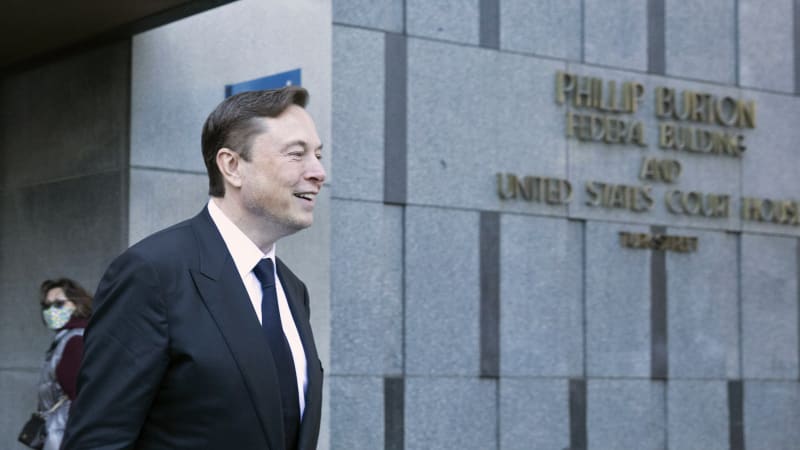Elon Musk Tesla tweet trial delves into investor damages up to $11 billion

SAN FRANCISCO — An Elon Musk tweet declaring he had the financing to take Tesla private in 2018 caused billions of dollars in investor damages after the deal collapsed, according to estimates presented Tuesday at a trial examining the haphazard handling of the buyout proposal.
The mind-bending estimates laid out by two experts hired by attorneys representing Tesla shareholders underscored the challenges facing a nine-person jury as the three-week trial winds down this week. U.S. District Judge Edward Chen expects to turn the case over to the jury Friday.
Depending on the verdict, Musk and the electric automaker that he runs could be facing more financial fallout for his unpredictable behavior on the Twitter platform, which he now owns. Without acknowledging any wrongdoing, Musk and Tesla reached a $40 million settlement with securities regulators after Musk’s troublesome tweets in August 2018.
In this class-action lawsuit on behalf of Tesla shareholders, the jurors must first determine whether two tweets that Musk abruptly posted on Aug. 7, 2018, steered Tesla investors in the wrong direction. If the jury decides to hold Musk accountable for the tweets that Chen has already deemed falsehoods, they will will face what may be an even more formidable task — trying to calculate how much Musk — one of the world’s richest people — and Tesla should have to pay for the misleading tweets.
One of Tuesday’s two experts, economist Michael Hartzmark, reviewed a report peppered with terms such as “but-for” and “consequential inflation” that made a case for calculating the damages suffered by Tesla shareholders during a 10-day period in August 2018 at anywhere from $4 billion to $11 billion, or $22.55 to $66.67 per Tesla share at that time.
Another expert, University of Maryland finance professor Steven Heston, reviewed an even denser report analyzing the impact of Musk’s tweets on more than 2,000 types of Tesla stock options, drawing largely upon a formula known as the Black-Scholes model widely used by companies to value executive compensation packages.
When pressed by a Musk lawyer about the reliability of his model, Heston acknowledged: “All models deviate from reality, which is why they are models.”
Heston, who said he was paid $300,000 to $350,000 for his work in the case, demurred on trying to make a concrete estimate on the investor damages, saying that was a job for the jurors.
The crux of the case hinges on an Aug. 7, 2018, tweet in which Musk declared “funding secured ” to take Tesla private. Musk abruptly posted the tweet minutes before boarding his private jet after being alerted that the Financial Times was about to publish a story that Saudi Arabia’s Public Investment Fund had spent about $2 billion buying a 5% stake in Tesla to diversify its interests beyond oil, according to his testimony.
Amid widespread confusion about whether Musk’s Twitter account had been hacked or he was joking, Musk followed up a few hours later with another tweet suggesting a deal was imminent.
During roughly eight hours of sworn testimony, Musk repeatedly insisted he was looking after shareholders’ best interests and believed he had a financing commitment from the Saudi fund that was recanted after his “funding secured” tweet. Musk also testified he could have still pulled off the buyout by raising money from other investors and selling some of his stock in SpaceX, a rocket ship maker that he founded.
After consulting with Tesla’s major shareholders, Musk decided the electric automaker should remain publicly traded — a decision that has paid off for him and other investors. Tesla’s shares are now worth more than eight times what they were at the time of Musk’s buyout tweet, after adjusting for two stock splits that have occurred since then.



